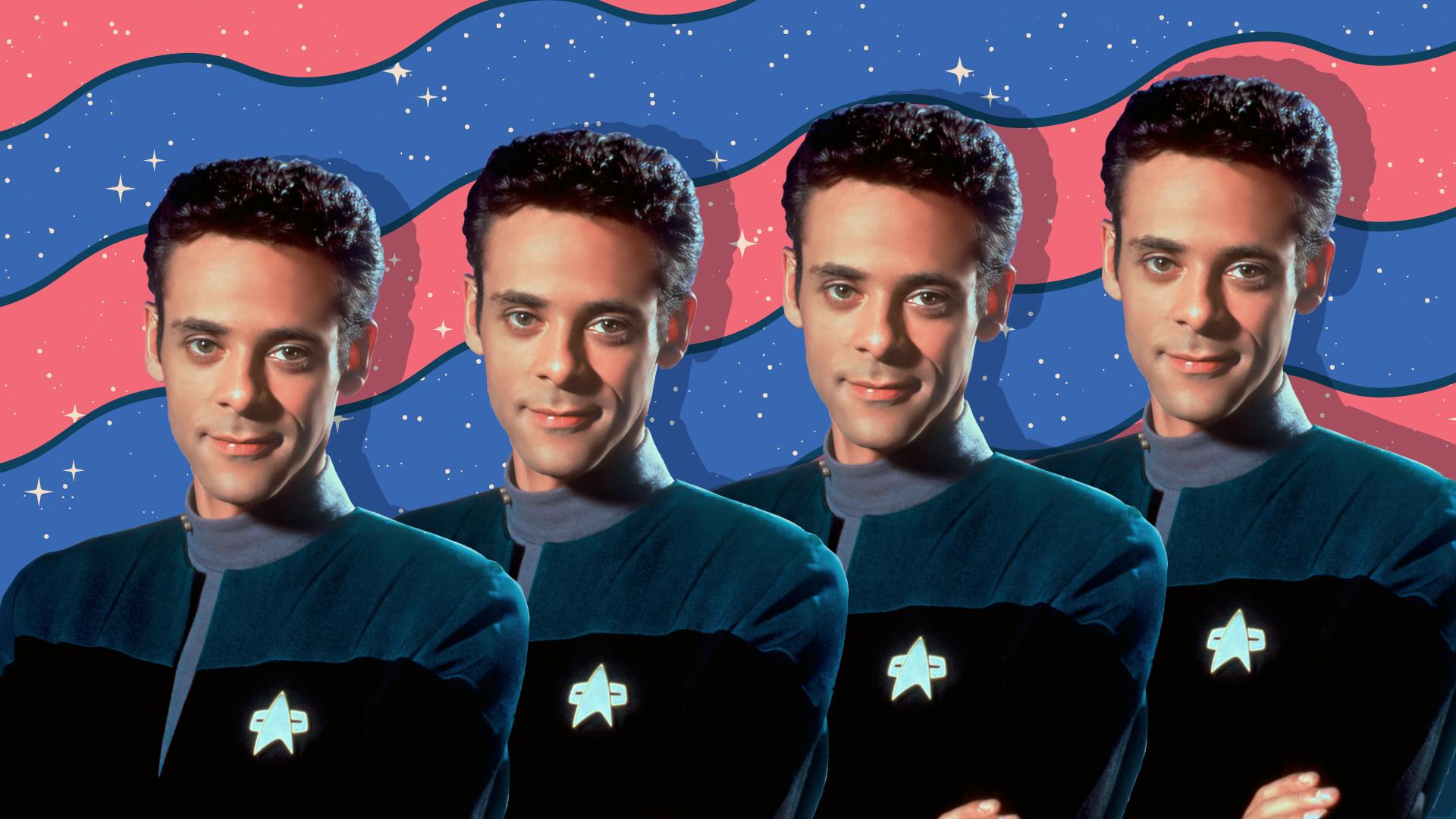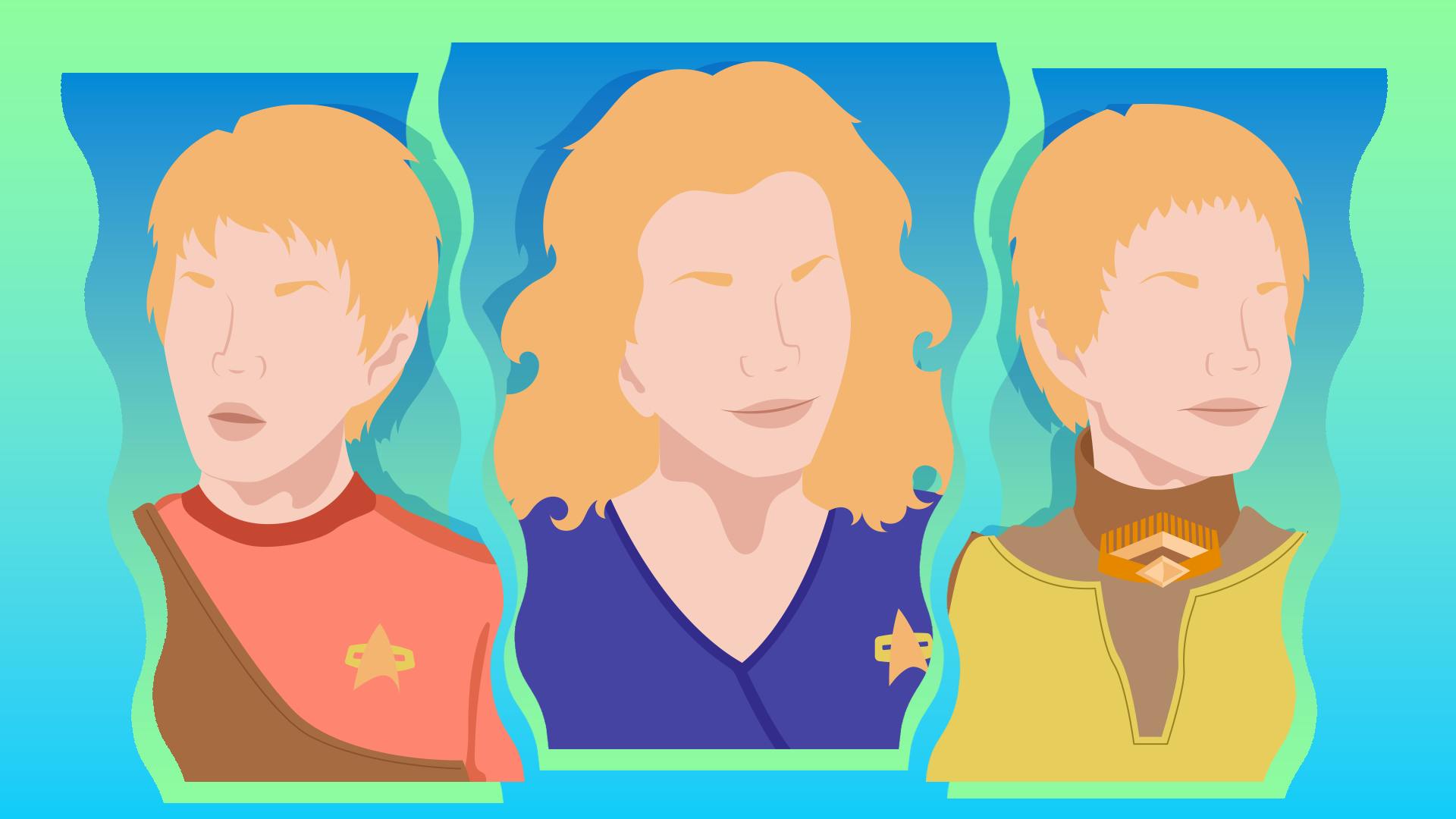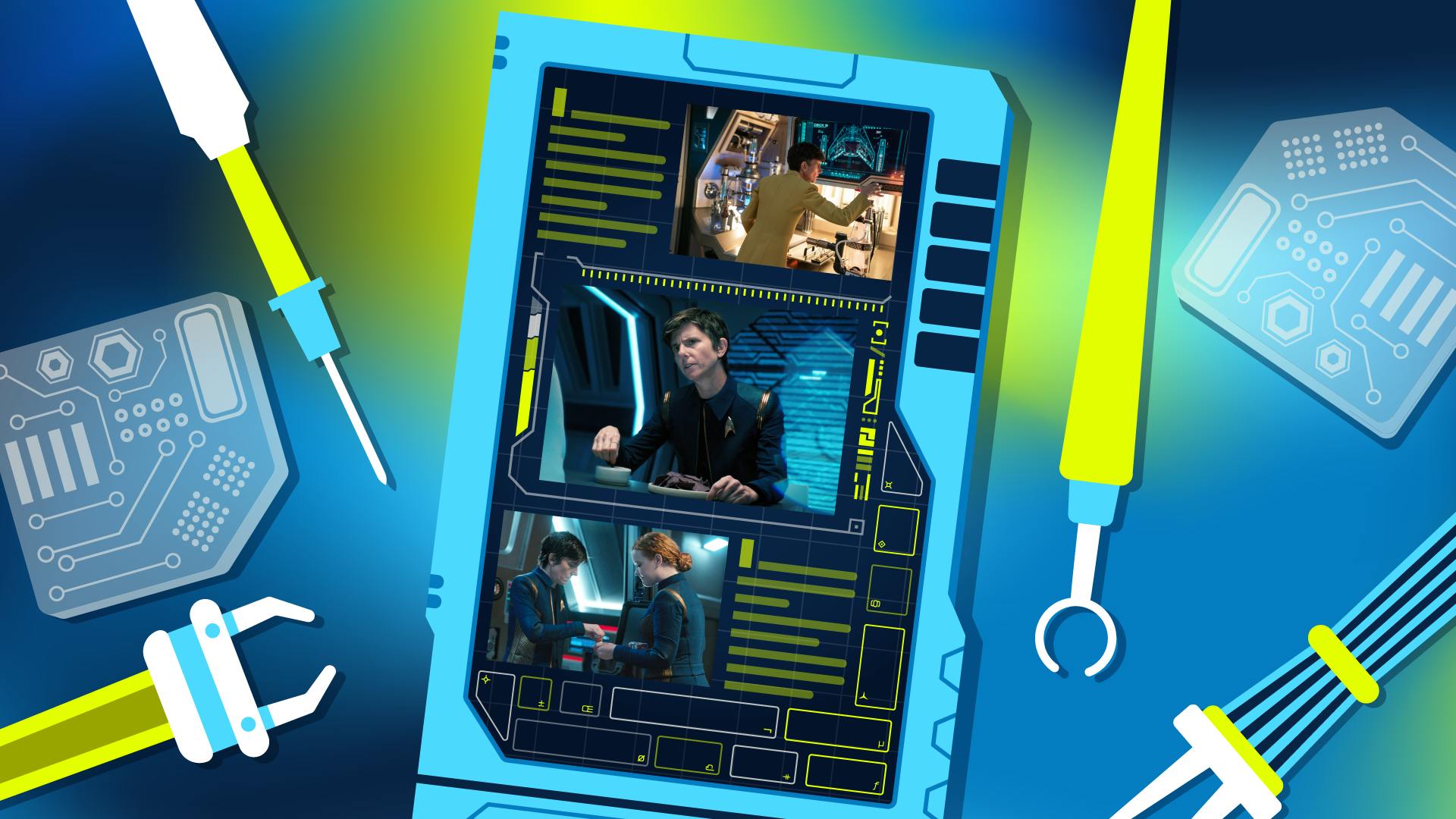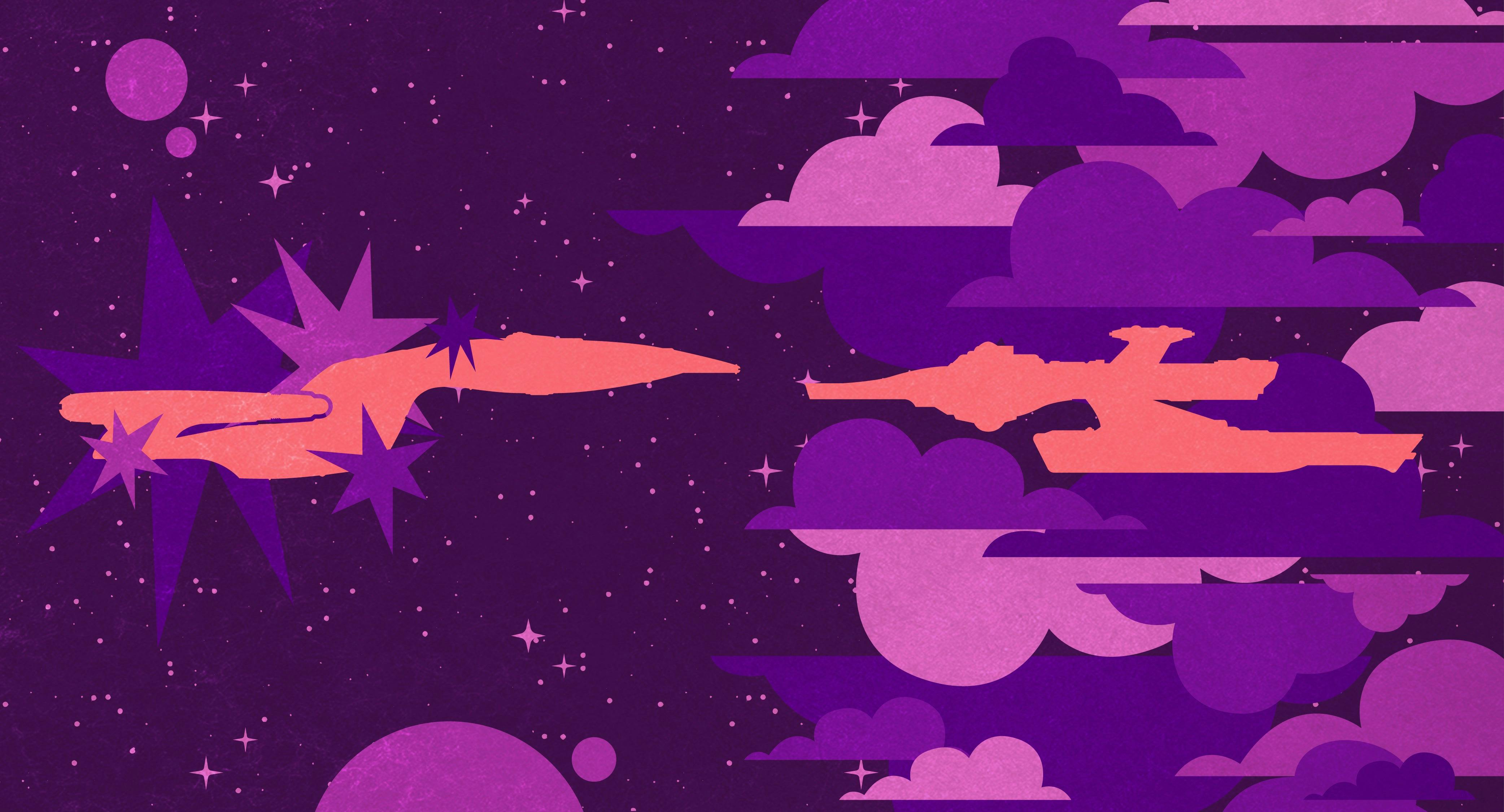Published Sep 19, 2017
EXCLUSIVE INTERVIEWS: Discovery's Doug Jones and Shazad Latif
EXCLUSIVE INTERVIEWS: Discovery's Doug Jones and Shazad Latif
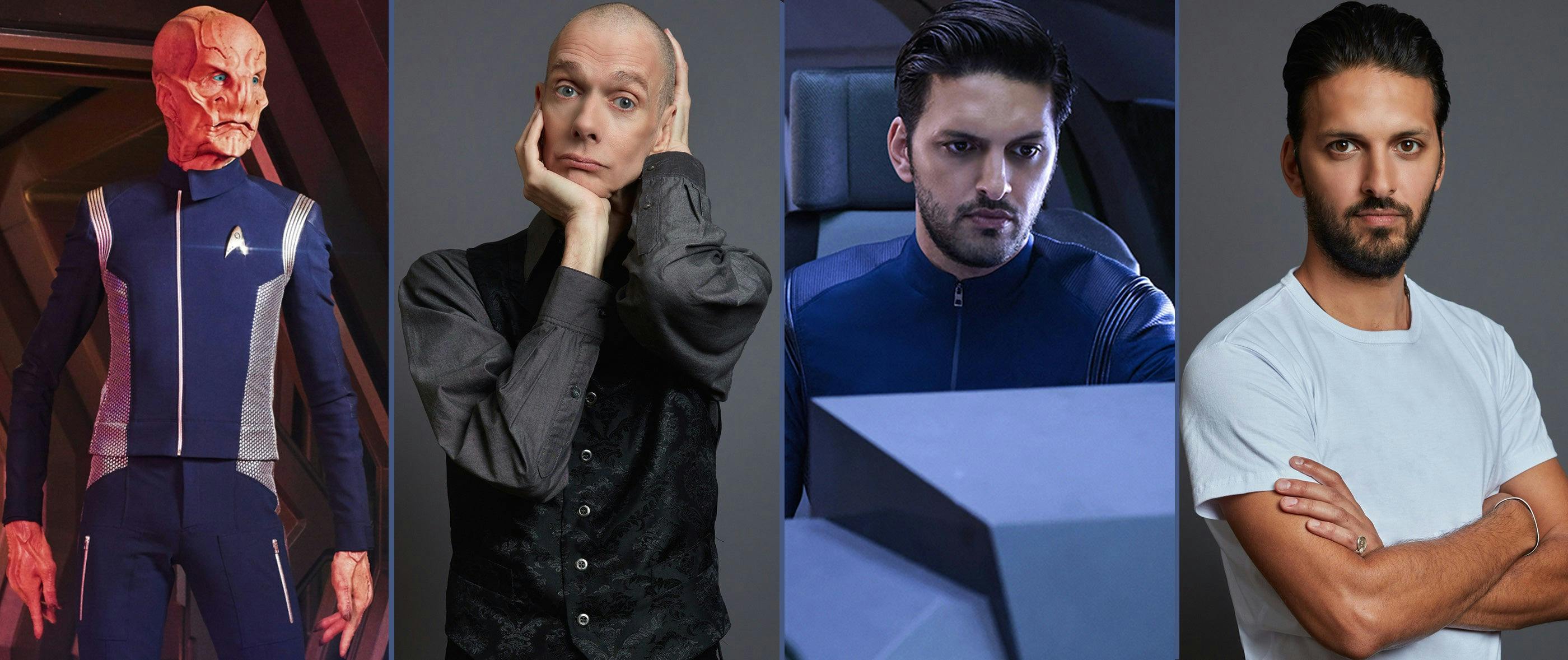
Doug Jones is a god in sci-fi circles. All right, maybe that’s a bit of hyperbole, but he’s a true genre favorite known for playing exotic creatures in too many sci-fi, fantasy and horror movies to count. But he had us at Buffy the Vampire Slayer, when he slayed at the Lead Gentleman, and again in Pan’s Labyrinth, when he brought to life El Fauno/Pale Man, or in the Hellboy films, where he portrayed Abe Sapien. And now, he’s playing yet another exotic character, Lt. Saru, on Star Trek: Discovery. Far less familiar to audiences – for the moment, anyway – is Shazad Latif, a British actor whose credits include Spooks, Black Mirror, The Man Who Knew Infinity and, most notably, Penny Dreadful, on which he co-starred as Dr. Henry Jekyll/Mr. Hyde. He’s also part of the Discovery cast, portraying Lt. Ash Tyler. Jones and Shazad were paired up for interviews during a recent Discovery press day. The two, for 20 minutes, chatted with a handful of journalists, including StarTrek.com, to discuss Discovery, their characters and more. Here’s what they had to say:
How well did you know Star Trek before you hooked up with Discovery?
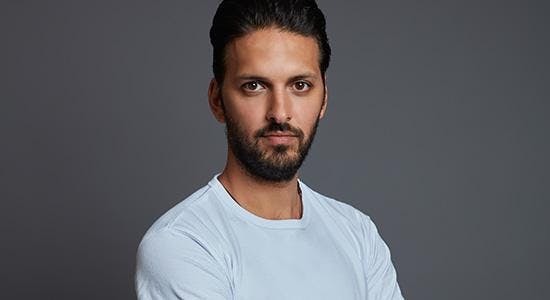
Latif: My granddad and my grandma were big fans. I grew up with mainly Next Generation, a lot of Patrick Stewart. And obviously Kirk, and Spock, and the original. I wasn't a super-fan, but I was definitely aware of the history of it, and how big it was.

Jones: I was born in 1960. So, that means that The Original Series was on TV, on the network when I was watching TV. That was my first experience, and I took a special liking to that tall, lanky Spock fellow. I understood his physicality, somehow. Then, of course, reruns happened almost immediately back in that era, and so when Next Generation came on, too... I'm a channel flipper, and so I'm one of those audience members that finds things because you're flipping a channel go and go, "Oh, I'll stay on this for a minute." So, that's how I stand on all the other Star Trek series. Next Generation, Deep Space Nine, Voyager and Enterprise were all because I would be like, "Oh, well here's a new one. OK, I'll watch that for a minute." And then I would get hooked on something and get to know those captains and those crews and those space ships.
What does it mean to both of you to be a part of a Star Trek show now?
Latif: To be part of that when you know it's got such a following, such a huge fan base (is exciting). And mostly for personal reasons. It’s something I can go to my great-uncle when I go visit, and say, "Look! I'm on the show you love!" And that's always stuff they can relate to, especially family members.
Jones: It's daunting to me, especially as an actor who's worn a lot of crazy makeup over my career. I've been every alien under the sun, and outside the sun for decades now, in my 30-year career. I keep getting asked, "Have you ever done anything in the Star Trek universe?" And I can finally, after 30 years ...
Latif: Shout it from the roof top.
Jones: Yeah, yeah, "Yes I am!" I understand the gravity of what this is, the legacy that this franchise has behind it, the audience that it brings with it. It's bigger than you can even fathom, so you try not to think about that while we're trying to do the job, because behind the cameras it's history and a huge audience, and there's so much.
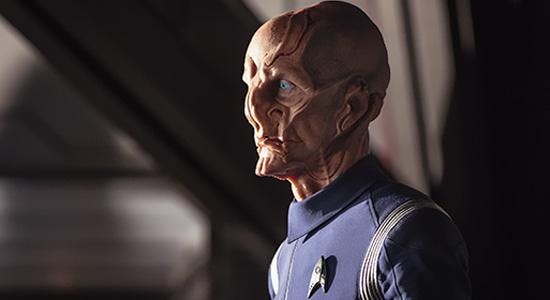
Do you feel pressure, Doug, in that some people are comparing your character to Spock, to Data?
Jones: Pressure might have a negative connotation. I feel more of a responsibility. Yes, because I have been acquainted with Spock and Data already by the writers, and by anyone who has seen any previews, or any clips or whatever. Those analogies and those comparisons are already being made. I would like to think that Saru will hold his own, as his own character, and his own thing that will have his own charm and his own following, and his own legacy. Let's hope.
It's rare that anybody gets to create an alien character in Star Trek. You're starting from scratch, Doug, and in a serialized world. What does that offer you?
Jones: Right. I was very, very excited that I didn't have to dig into an already established species, and then get their quirks. That would have had some pressure behind it, like, "I better get this right, or the fans are going to hate me." This is like, "Well, no one is going to know if I'm getting it right or wrong because, it's starting right here!" Right? That's been exciting for me, that we're starting a new species, or, hopefully... I don't know if it can live on after this series because this is 10 years before The Original Series, so we'll see. It will be interesting to see what happens with him because, if this species never showed up anywhere after this in the timeline, the question remains, "What happened to the Kelpiens?" To get his backstory, and what the writers can tell me, and what physicality can come out of his look and his being, has been really fun to develop.
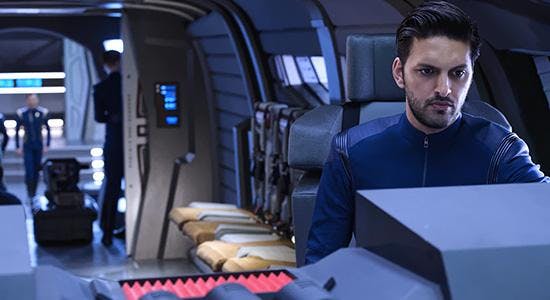
Shazad, your character came from war and experienced war, whereas Star Trek has always been about hope and optimism. Discovery feels a bit darker than previous Treks. Does Lt. Tyler have this dark side, too?
Latif: Yeah, definitely. We meet him in a very dark place. He's a prisoner of war, and that's how we first see him. I think this version of what we're doing has a lot more complex darkness in it. I think that's very good, because it's very exciting to watch. It can be tough to watch, but very interesting. And that's the play entity as an audience member. So, there is that, yeah, there's a big darkness.
Tyler seems to be the most mysterious character so far, or at least the one we know the least about. What else can you tell about him?
Jones: Please watch our show! Sunday nights.
Latif: I always say it's good to have a little bit of mystery, because otherwise... Yeah, he's a POW. We explore PTSD. There's a relationship with Burnham, and there's chemistry there. I know you already know these things. That's as much as I can sort of say, really.
Jones: Tune in, though.
Star Trek has like hard core fans. Some of your colleagues told us stories about how they react to this fandom. What are your experiences with fans so far?
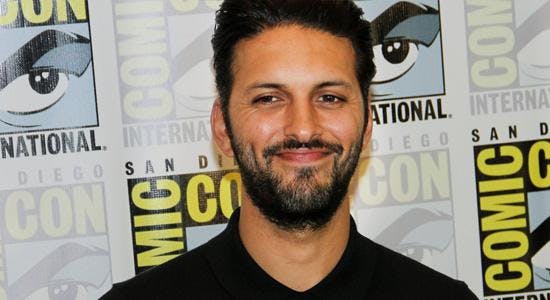
Latif: When we came back from Comic-Con, on the plane, as soon as we arrived, there were people there already, which means they must have been following the flight. You're like, "Oh! So, it's going to be like…" Suddenly, you realize how important it is to these fans. It's kind of beautiful. You've got a big responsibility.
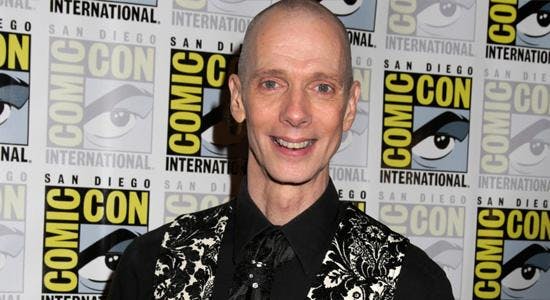
Jones: One thing you don't have to worry about is, "Oh, will the show have legs under it? I don't know if it's going to take." Yeah, the audience is there. Even the fan base, what's beautiful about it is there's fans who are so excited for a new chapter, a new piece of the Star Trek universe. There's others who are the naysayers. But every new series that there has been throughout all of these decades, there has always been naysayers. Every series has looked different from the one before it. The Klingons have never looked the same in one series to the next, ever. So, why should ours be any different? There's always going to be someone that goes, "Ah, this is going suck. I don't know if I want to watch it or not." Well, that's the person who is going to be sitting there on the night of like this, like panting at the TV. I think all the talk is nothing but good for the show. Really, it is. I'm very happy about that.
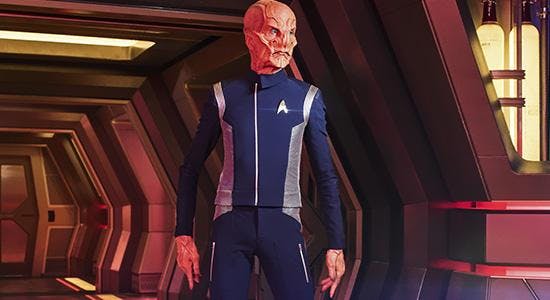
The Kelpiens are prey species. Would you say that Saru he always feels threatened? And if so, or if not, will he feel less threatened the more he gets to know his crew?
Jones: Right. The best analogy in nature would be a gazelle. I'm kind of like a gazelle in the forest. When there's a lion about, I'm in danger. I could get chased down and eaten. When I'm among my pack, or my people, or my type, we have our moments where we're chewing on something green and at peace. But with the constant sixth sense, that animal instinct, that danger's afoot, I have to aware of that. So, I'm kind of born into a world where I'm always looking over my shoulder, yes. But, that's just kind of a part of who I am. Knowing true peace, where you don't have to worry about any threat at all, is not something that Saru is akin to. He doesn't know that. There's one episode that will explore that in more detail, which is really a fun one.
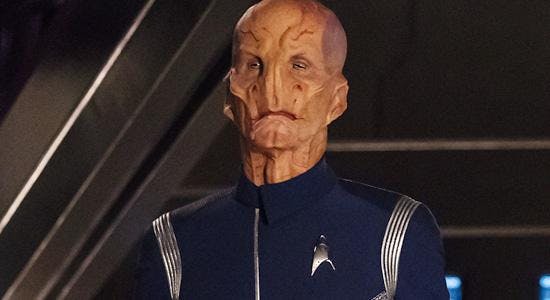
How much of a living entity is your makeup, especially with the threat ganglia? Are there moving parts on it?
Jones: Yes. It is a silicone prosthetic makeup mask glued onto me, head and hands. There is nothing going to be CG enhanced, except the threat ganglia. Nothing else has to be mechanically enhanced. There's no servos, there's no joysticks, there's nothing that needs to be puppeteered or CG enhanced, except for the threat ganglia. And they kind of come of the back of my head, back in here somewhere, around the back, behind the ear somewhere. We hadn't really seen what they look like exactly yet because I have to mime them, whenever I pop them back in. This is a really gift to the budget, to not have to use that much CG. And to give to me personally, the props can really be more, "all mine," once the makeup is on me, and all the artists that make that happen, which, if I can talk about the makeup ...
The shop is Alchemy Studios in Los Angeles. Neville Page, the designer who created my look, he's just a decorated production designer and creature designer. And Glenn Hetrick has partnered with him at Alchemy Studios to make this all facilitated and happen. And James MacKinnon is my lead makeup artist on set, and he has a Star Trek pedigree himself. He was a makeup artist on Deep Space Nine and Voyager, and First Contact, and another, one of the J.J. movies as well. So, he's got a lot of Star Trek in his background. For him to be on this is just another lovely legacy coming forth. Once all of that history, and all that expertise is on me, then it's my responsibility to make it move and work. It's all up to me at that point. It gives me a lot of ownership to know that it's not going to be all jimmied with CG in post-production.
How did each of you land your role on Star Trek? Did you hear about it and actively pursue it? Or did they call you?

Latif: Funny enough, a week before my audition, my friend, a guy I know from drama school, she was auditioning for it. I ran a scene with her, and there was a Burnham scene, and then a week later I get a call and I did the take in my kitchen with my mum. I ended up directing her a bit, because she's you know, overacting, and I said, "Let's just play it. Let's play the scene." I always enjoy doing it with her, because she's quite good. And then I did a seven-way Skype audition. So, I didn't have to come out to L.A., which was a different thing. So, it was nice. Seven people on Skype and then that was it. I was very lucky. It's crazy.
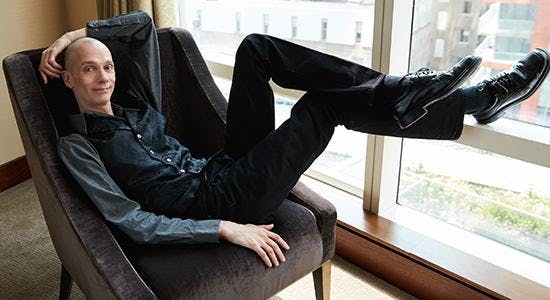
Jones: My story started probably a bit earlier, because it was over a year ago now. It would have been, oh golly, July last year. Neville Page kind of wink-winked, nudge-nudged me and said, "Has anyone called you from Star Trek yet?" And I said, "Why would they? There's a Star Trek coming? What are you talking about?" He said, "Well, OK, but you didn't hear that from me." Finally, my manager called and said, "Hey, turns out there's a new Star Trek series, and they want you for this alien character. So, are you interested to pursue it further?" I said, "I don't have to audition? What are you talking about?" Bryan Fuller was our showrunner at the time. Between him, Neville Page and Glenn Hetrick, whom I've already worked with and known from before, when they were developing the character of Saru, they were like, "Doug Jones is the guy you have to have play this." Bryan was already apparently a fan of mine, thank heaven! So, he's like, "Great, well, I'd love to meet him!" So, I flew out to L.A. I was already working on The Shape of Water here in Toronto. Flew out to L.A. and had a meeting with Bryan, and we all fell in love with each other. And I met Aaron (Harberts) and Gretchen (Berg) on the same day. They were all part of the writing staff already anyway. We all fell in love with each other, and it was just kind of decided that day, "Well, all right then, I guess I'll be playing Saru. Thank you." That was too easy of a story, really. And frightening because, if I come with that much of a recommendation, I don't even have to audition, I better be good! Oh my gosh! Right?
Everyone wants to know about Discovery. How hard is it to keep secrets, to avoid the spoiler-y things when talking to fans, family, friends and us?
Jones: You have to watch who you talk to and what you say to them.
Latif: This is when you threaten.
Jones: My wife or close friends will run lines with me, and help me rehearse, but I threaten them with their life if they talk.
Star Trek shows tend to run several years. How ready are you for the possibility of five, six or even seven seasons?
Jones: You have to be ready for a long run. I think they were talking at least a five-year plan, hopefully. Let's hope it does.
Is that daunting, exciting, both?
Jones: Both of those things. That's the bulk of your life for the next five years is what it is. So, I'm OK with that. I'm OK with that.
Latif: It is daunting and exciting. It's work. Sometimes it's scary to plan that far ahead. But then, it's a show. (that can have) that kind of length, it seems. I usually don't plan that far ahead.
Jones: And at 57 years old, if it is a five-year plan, I'll be 62 once it's done, and I'm walking in these high heeled shoes with a skintight outfit on. I'll be ready to be done with that by about then.
Latif: Probably be in a wheelchair in season six.
